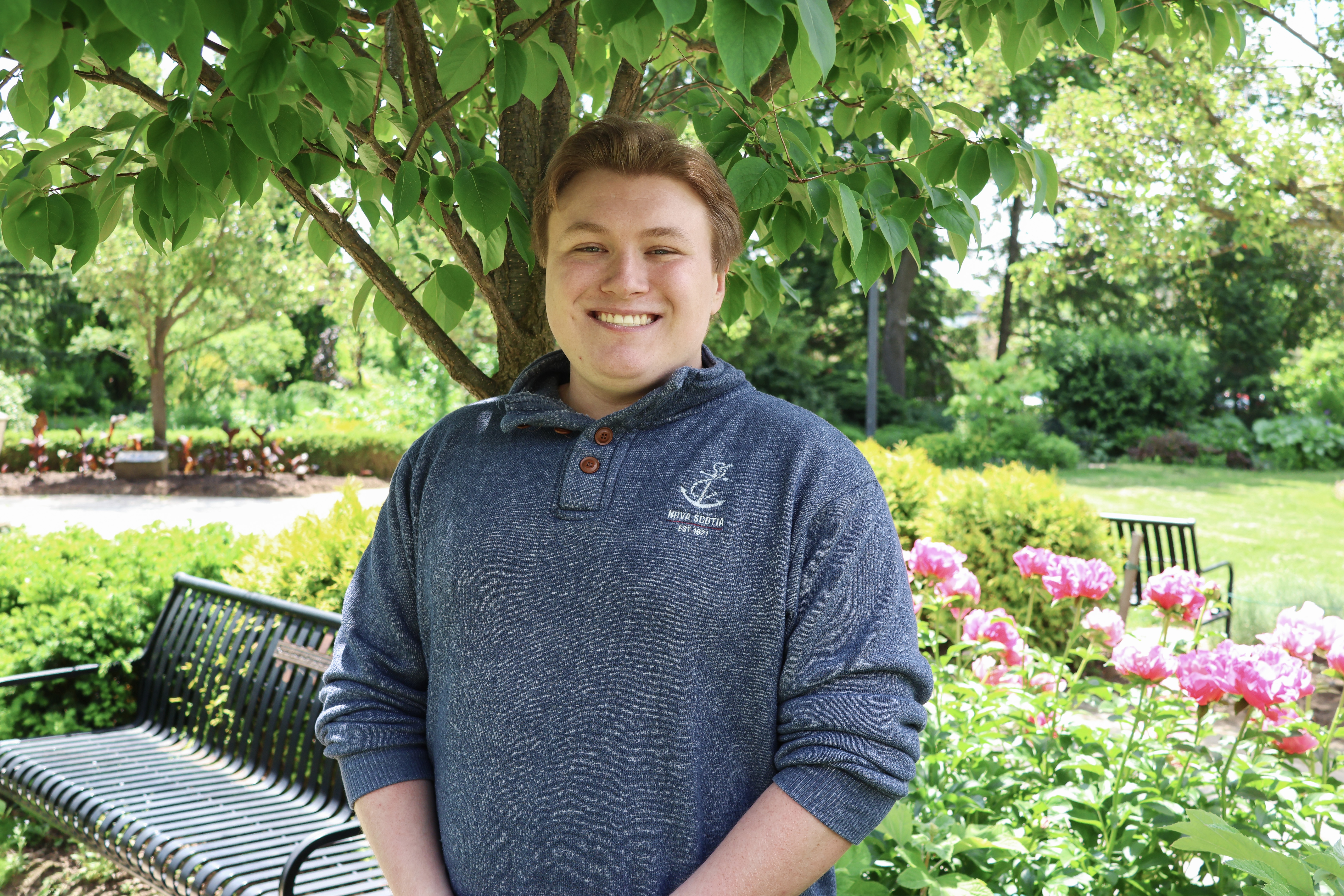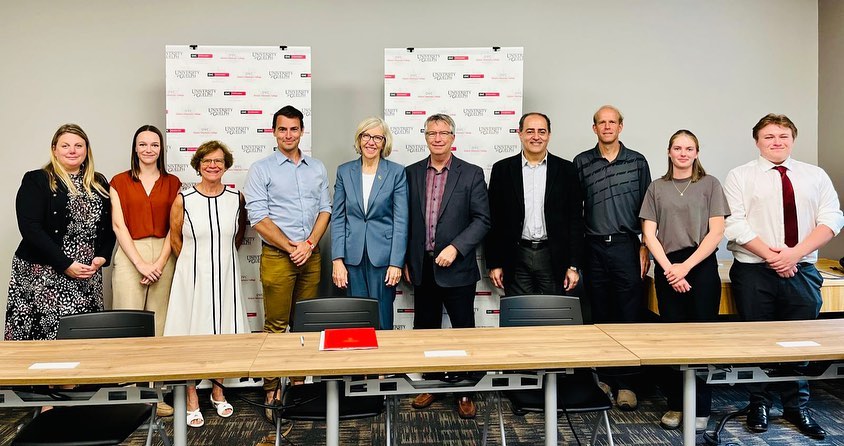It took a bit of salami to change the course of Benjamin Snetsinger’s life.
The fifth-year University of Guelph student will become Canada’s first-ever Bachelor of One Health (BOH) graduate this June. But One Health was not always his path.
Snetsinger recalls a crucial turning point: a co-op term where he helped research and develop new salamis at a large sausage manufacturer.
“It was a really great job and an amazing food science experience,” Snetsinger says, and with a laugh, adds, “but all the salamis made me start looking at other programs.”
During his search, he took an epidemiology course led by Dr. Kelsey Spence in the Ontario Veterinary College, where he became fascinated by how diseases move and change in the world, and how modelling them could be used to predict outcomes and save lives.
Originally a microbiology major, Snetsinger says the course sparked an interest in more interdisciplinary approaches.
“That’s when I realized One Health is what I want to do,” he says, “and how much I agree with tackling complex issues and developing holistic solutions to them.”

Benjamin Snetsinger earns Bachelor of One Health, first of its kind in Canada, at summer 2024 convocations.
Bachelor of One Health decades in the making, integrating human, animal and ecosystem health
The first BOH grad is the culmination of more than three decades of leadership to integrate One Health into U of G programming.
This includes the establishment of the One Health Institute in 2018 by Dr. Cate Dewey and OHI program manager Katherine Heyland, which has become the home base for U of G community members engaged in One Health research, academic programming and public promotion.
The BOH program itself was developed by representatives from four colleges under the leadership of the College of Biological Science, with Dr. Brian Husband as Chair of the Program Committee and Heather Pollock as academic manager.
In the fall of 2022, U of G introduced the BOH degree program, the first of its kind in Canada. Though some schools offer One Health courses, U of G is the only university that offers a full degree.
The program teaches students to apply One Health principles, a holistic and transdisciplinary approach that integrates three pillars: human, animal and ecosystem health.
Take COVID-19, Snetsinger says. The virus travelled from animals to humans amidst cultural and environmental factors, highlighting how critical One Health is to tackling today’s challenges.
“Most problems have to include everybody,” Snetsinger says. “And that includes sociologists and psychologists – the ‘soft sciences,’ as some people might call them, but they’re no less important. In my program, I got to do all sorts of different classes, from sociology, to geography, to biology and disease.”
One Health graduates ‘see connections’ among disciplines and experts

Because Snetsinger transferred from another program and was successful in advanced One Health courses, he propelled far ahead of the first cohort of BOH students, who will graduate in 2026.
Now he’s a fierce advocate for One Health. He took part in several roundtables with political leaders, including MPs Adam van Koeverden and Lloyd Longfield, as well as Deputy Minister of Immigration, Refugees and Citizenship Dr. Harpreet Kochhar, to discuss the need for One Health in government and how it may be implemented in the future.
“It takes programs such as BOH to nurture individuals who see connections and can serve as translators among specialized disciplines, organizations and experts,” says Husband, professor of integrative biology in the College of Biological Science, who co-developed the program.
Snetsinger also took part in the Ontario Universities’ Fair and Battle STEM, promoting his program to incoming high school students.
This April, he completed his undergraduate research project, aimed at reducing the impact of zoonotic disease and improving the lives of women and girls in East Africa. He developed educational materials – a “train-the-trainer” approach – to support One Health teams at the village level.
“The goal is to make a One Health team,” he says. “One person looking after environmental health, another person for animal health and another for human health.”
He returns to U of G this fall, ready to take on a competitive course-based master of public health. As the only One Health grad, he hopes to bring his unique transdisciplinary perspective to a co-op work term in public health.
Snetsinger thanks mentors Dr. Dewey and BOH program counsellor Jessica Nayda, among many others. He crosses the convocation stage on Thursday, June 13.
